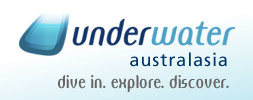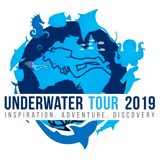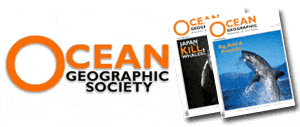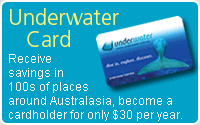
Coral Sea one step closer to protection
WWF today welcomed the Australian Government's move to protect the Coral Sea by creating a conservation zone of nearly 1,000,000 square kilometres.
"The Coral Sea is one of the world's healthiest marine wilderness areas, where it is still possible to see healthy populations of sharks, turtles, whales, fish and coral - all of which are big draw-card for tourists," said Lydia Gibson, WWF's Marine Policy Manager.
The declaration of conservation zone is an important step in the process of creating a marine protected area - the highest level of conservation.
As part of the conservation zone, current activity in the Coral Sea such as tourism and fishing will be allowed to continue, but new commercial activity will be rigorously assessed while the Government evaluates the region for its conservation value.
"WWF has been working hard to make sure this region receives the recognition it deserves and we will continue to consult with the Government and stakeholders to ensure that the a world-class marine protected area is created. We must not waste the chance to create a management system that will enable sustainable high-value, low-impact activities to continue," said Ms Gibson.
WWF has been working with marine scientists Richard Fitzpatrick and Dr Eric Treml to understand the daily habits of sharks in the Coral Sea and the migration patterns that link the Coral Sea with the Great Barrier Reef and the Coral Triangle.
"Just last week, regional leaders took steps to protect the Coral Triangle region to Australia's north and the marine resources and communities which depend on it. We need similar proactive management for the Coral Sea, and declaring a Conservation Zone is the first part of this process," said Ms Gibson.
WWF-Australia has outlined 10 criteria for creating a world-class marine protected area, which would include establishing the protected area before 2011; making sure the area covers all of the 1,000,000 square kilometres of Coral Sea under Australian control; creating large high-conservation zones within the marine protected area; and ruling out oil and gas exploration.
WWF-Australia welcomed Environment Minister Peter Garrett's indication that a final plan for the conservation of the Coral Sea would include many of WWF's criteria.
"As climate change begins to effect ecosystems around the world, including the Coral Sea, marine protected areas provide a buffer zone, allowing species to adapt to the changes. WWF would like to see a chain of interconnected marine protected areas across the world, giving marine species the greatest chance of survival.
"The Australian Government has a unique opportunity to save one of the world's last pristine wilderness areas, and we urge them to continue the process." Find out more
Jonathon Larkin, WWF-Australia Mobile: 0410 221 410 Email: jlarkin@wwf.org.au
![]() Contributed by Tim Hochgrebe added 2009-05-19
Contributed by Tim Hochgrebe added 2009-05-19
![]() Login or become a member to join in with this discussion.
Login or become a member to join in with this discussion.

 Ikelite Australia - Underwater Photographics
Ikelite Australia - Underwater Photographics
Underwater Australasia is official dealer for all Ikelite products since 1999 and we can help you with all your Ikelite video and digital camera housings needs as well as accessories such as strobe packages, ports and more. Sales to Australia only.
Articles
-
 Papua New Guinea, A Kaleidoscope
Papua New Guinea, A Kaleidoscope
- The country has a wonderful feeling that you cannot find anywhere else in the world. There is so much in Papua New Guinea to experience as it is widely spread out and diverse.






